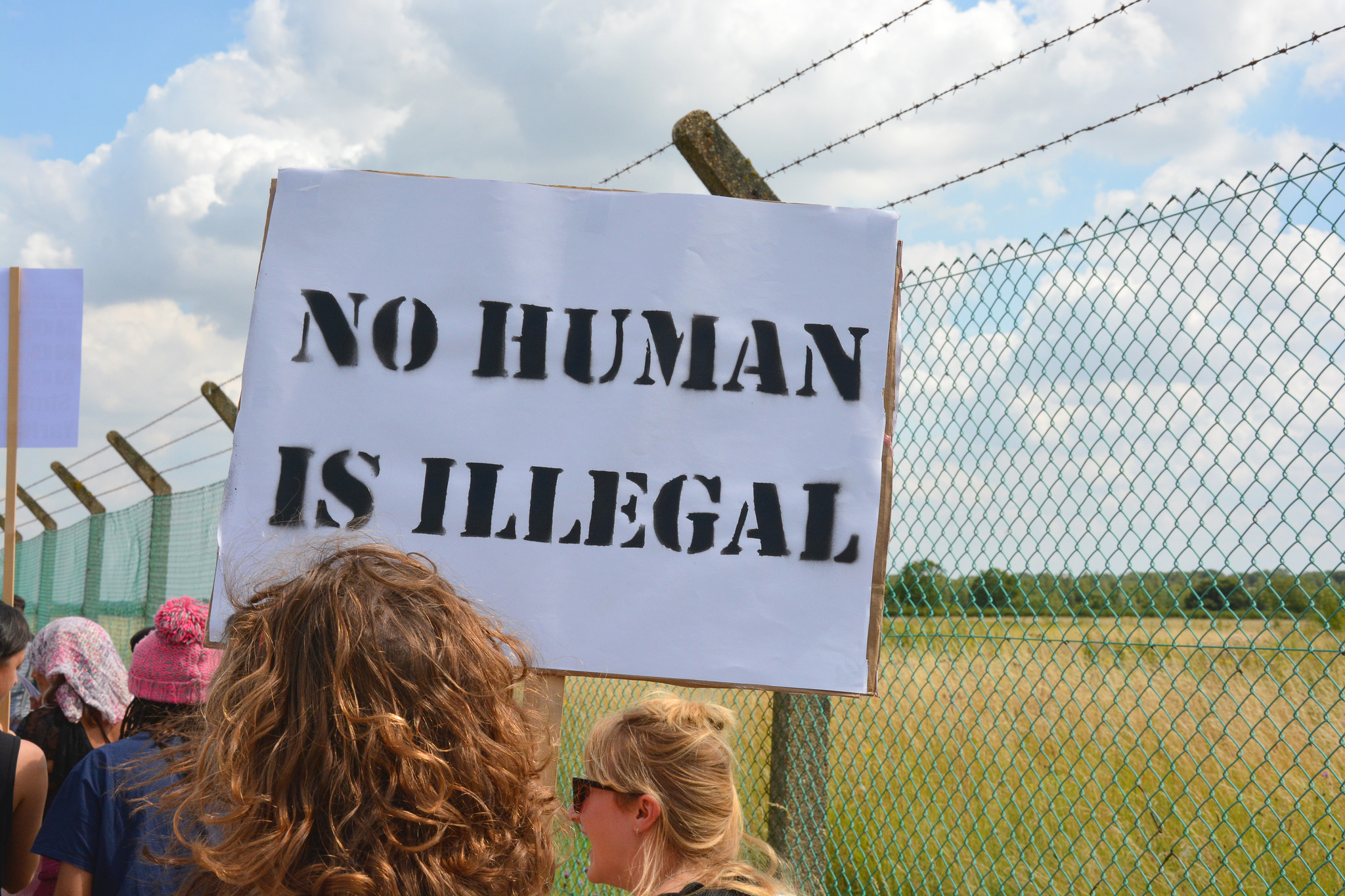[contextly_auto_sidebar]

The last couple of days my twitter feed has featured two stories, Paul’s and Joe’s. Paul is an academic originally from the USA who was arrested last month and is being held in immigration detention. Joe is a former intelligence services worker originally from East Africa, and a former immigration detainee.
Paul’s story
Paul recently gained his PhD from the University of Birmingham and applied for further leave to remain as he was looking for post-doctoral funding. Having paid for his application, in case it was denied Paul also bought an open return flight to the US. Instead of notifying him of a refusal, however, the Home Office waited until the application window of six months had closed, then told Paul of the outcome of his application – at the same time as arresting him for being in the UK without permission.
I’m an academic and former NGO worker so my twitter is roughly half early modern literature talk and half legal and civil liberties talk (with plenty of overlap). Paul’s detention has come as a shock to around half of my twitter community. The other group (the legal and civil liberties enthusiasts) wasn’t surprised, considering their experiences of immigration detention in the UK.
Joe’s story
Mostly, this group has been sharing the latest blog post from Border Criminologies: Joe’s story.
I’ve had the pleasure of meeting and chatting with Joe a couple of times, having previously worked together with immigration detainees both in detention and on release.
Joe was detained for three years after seeking asylum in the UK, following his whistle-blowing, arrest and torture in his country of origin. He developed Post Traumatic Stress Disorder during detention and attempted suicide. Joe was released from immigration detention in 2012, but because his case still hasn’t been resolved he’s forced to live in Home Office accommodation for foreigners, separated from his two children who are British. In the immigration detention world that Joe is part of as a detainee and advocate, his story is awful but familiar.
In Paul’s case, on the other hand, there is no small amount of disbelief that he is being treated like a criminal, despite having done nothing wrong. However, this is also true for the majority of immigration detainees in the UK. Perhaps they’ve failed to prove to an indifferent immigration officer that they are vulnerable or persecuted enough, perhaps the Immigration Rules have changed yet again and they’ve failed a visa application. They’ve done nothing wrong, but it still happens.
The outrage expressed by the academic community and onlookers also implies a sense of collective shame, but also ignorance, at ‘How Britain treats its foreign students’ (here). However, to write that the reason given for Paul’s detention, a lack of family ties, ‘could apply to any international student’, and is therefore preposterous, overlooks the fact that this reasoning has indeed been applied to many international students over the years.
Actually this reasoning has also been applied to those with family in the UK, on the grounds that the right to pursue a family life does not include the right to pursue it in the UK. I’ve visited students in immigration detention in the UK: the State has been banging down doors to arrest people at dawn, traumatising kids and humiliating adults in the name of immigration control for some time.
It has been reported that following Paul’s arrest a police officer refused immigration officers’ demands to prosecute him. Paul’s detention is disproportionate and cruel, and the police officer refused to go along with it. For this they should be applauded. But what was it about Paul’s case that showed up administrative detention as mindless repression? Why are 30,000 people a year isolated and degraded in detention facilities? Why doesn’t immigration control strike us as equally absurd in every case?
To be clear, I am not criticising anyone who’s expressed outrage at Paul’s detention (myself included). Administrative detention is always unjust and inhumane. And as Paul’s supporters point out, ‘Dr [Paul] Hamilton’s case is only one of many and there are even more blatant infractions of civil liberties and human rights’. Equally I’m not suggesting that academics don’t foment change. They do. Scholarly research makes us think again, shifting how we imagine the world around us – and in turn the world itself.
Repression is reality
What I am interested in is the reasons why Paul’s story seems egregious. For immigration detainees – individuals and families with rejected visa applications, torture survivors, children, pregnant women, asylum seekers, refused asylum seekers, the undocumented – repression is reality. First, inside immigration removal centres and prisons up and down the UK, often for long periods of time, with limited redress; and then outside on temporary release, living precariously and in government-mandated poverty until the next time they are rounded up for detention.
The UK government seems to know how to market repression. If red doors and coloured wristbands prove too easy an analogy with yellow stars and pink triangles, apologies can be issued, presumably along with instructions to the privately contracted security firms that run the UK’s detention facilities, to stop drawing attention to the quiet hum of everyday dehumanisation.
Under-resourced and under some attack, academics are still exploring what humanists like Shakespeare show us about how we value each other, why Paul’s story is Joe’s story.
If we oppose Paul’s detention, we oppose Joe’s. We oppose the use of immigration detention as repressive and inhumane. Otherwise our protest is defeated the day we hear Paul’s story but not Joe’s.






